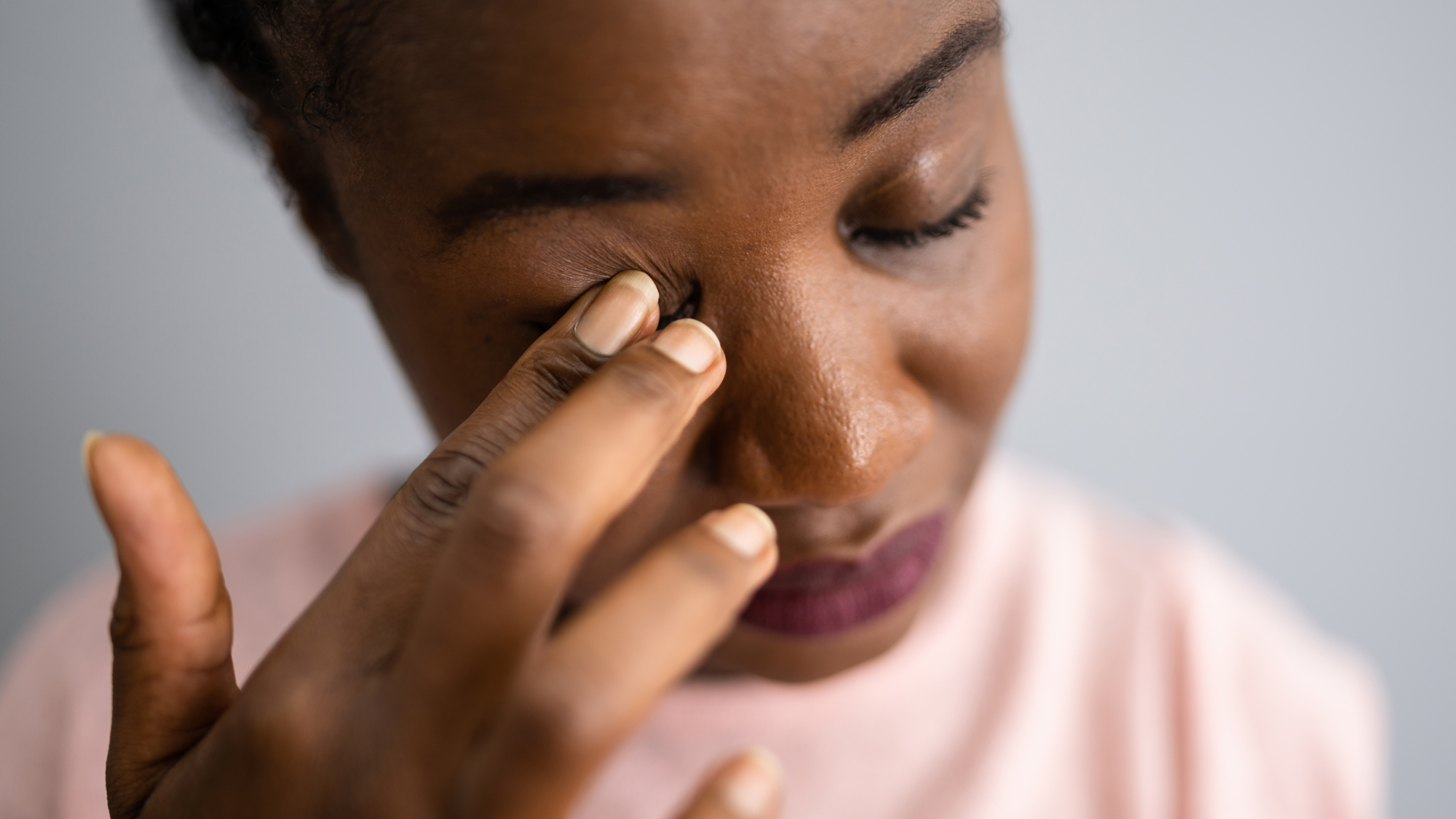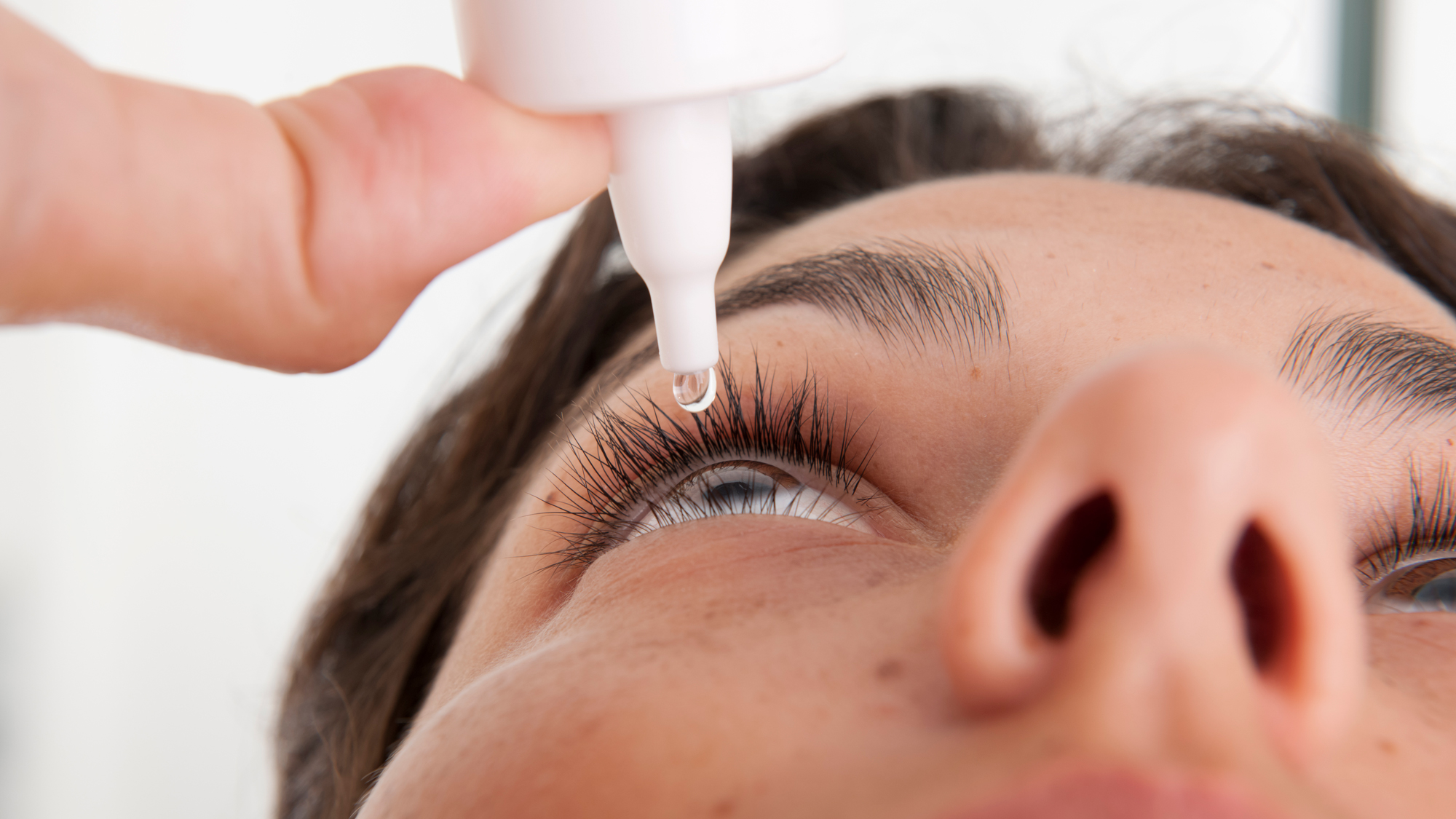Why menopause can cause dry, itchy eyes – and how to stop it
This menopausal symptom isn’t spoken about enough but an alarming number of women suffer from it


Start your week with achievable workout ideas, health tips and wellbeing advice in your inbox.
You are now subscribed
Your newsletter sign-up was successful
Mood swings, hot flushes, and night sweats are a few of the most commonly talked about symptoms of menopause. However, there are additional symptoms that are less talked about, and dry itchy eyes is one of those despite it being very prevalent among menopausal women.
Your body endures various hormonal changes during the menopause transition and is why women look to balance the symptoms with things like the best menopause supplements.
The above can be great for targeting certain symptoms, but you might still be looking to find out why you are experiencing dry and itchy eyes specifically, and additional ways to calm down this irritation.
The symptom is medically known as Dry Eye Syndrome and, according to the Society of Women’s Health Research, 62% of perimenopausal and menopausal women suffer from it. Typical signs of the symptom include sensitivity to light, dryness, blurred vision and a gritty, sandy feel in the eyes.
The condition occurs when the eyes aren’t making enough tears or the tears dry too quickly depriving the eye of moisture, making it feel dry and irritable. It can also make your eyes appear red and puffy.

Francesca Marchetti, Optometrist from Rohto Dry Aid told us that women going through perimenopause and menopause are more likely to experience dry eyes for a few reasons:
“Firstly, from our 40s onwards the quantity and quality of hyaluronic acid produced by our bodies decreases. This hyaluronic acid is key in retaining moisture. Plus, as we get older the eyes produce fewer tears and these can be poorer quality too,” explains Marchetti.
Start your week with achievable workout ideas, health tips and wellbeing advice in your inbox.
Three tips to ease dry eyes during menopause
Think you suffer from Dry Eye syndrome? These tips from Marchetti and Rohto Dry Aid should help you ease the irritation:
- 20 20 20: We need to give our eyes a break from screens every 20 minutes by looking at a distant object (20ft away) for 20 seconds and blink for 20 seconds – it’s called the 20-20-20 screen break rules – and that includes phones and tablets. Every time we blink, a film of tears spreads over the eye which helps to keep the eye smooth and moist.
- Catch some ZZZs: It’s during the hours that we are resting, that our body can repair and recover. That goes for our eyes too as the time they are closed is a period when they aren’t being forced to focus. Getting 7 to 8 hours of shuteye can allow for tears to be replenished and eyes to relax. Not getting enough quality sleep? Find yourself one of our best mattress topper entries to make winding down feel extra comfy.
- Break the cycle: One of the most important things you can do to ease symptoms of dry eyes is to interrupt that vicious circle. You can do this with various eye drops that are sold over the counter, which will provides soothing relief and help hydrate and restore the tear film.
Jessica is an experienced fitness writer with a passion for running. Her career in journalism began in local news and she holds a Masters in journalism. Jessica has previously written for Runners World, penning news and features on fitness, sportswear and nutrition.
When she isn't writing up news and features for Fit&Well covering topics ranging from muscle building, to yoga, to female health and so on, she will be outdoors somewhere, testing out the latest fitness equipment and accessories to help others find top products for their own fitness journeys. Her testing pairs up nicely with her love for running. She recently branched out to running 10Ks and is trying to improve her time before moving on to larger races. Jessica also enjoys building on her strength in the gym and is a believer in health and wellness beginning in the kitchen. She shares all of this on her running Instagram account @jessrunshere which she uses for accountability and for connecting with like-minded fitness lovers.
